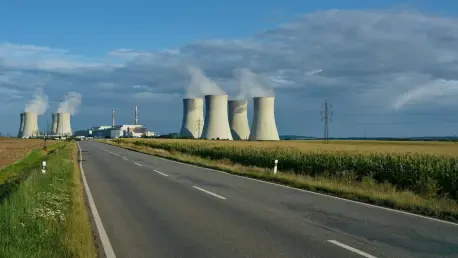Can the World Bank help solve the dual crises of energy poverty and climate change? As the world grapples with an urgent climate crisis and widespread energy insecurity, the question of whether nuclear energy might be part of the solution takes center stage. With billions lacking reliable electricity and renewable sources struggling to meet demands consistently, the role of nuclear power becomes increasingly relevant.
The Gravity of the Situation
Energy security remains a critical challenge for numerous countries. Dependency on a limited range of energy sources, coupled with inadequate infrastructure, significantly hampers development prospects. In many developing nations, reliable electricity is a precursor to economic growth, poverty reduction, and improved quality of life. Currently, the World Bank’s prohibition on nuclear energy project funding limits access to a potentially transformative energy source.
The Case for Nuclear Energy
Nuclear power offers immense benefits; it is highly reliable, clean, and produces no harmful emissions, which is paramount in reducing the global carbon footprint. Unlike renewable sources such as wind and solar, which can be intermittent, nuclear energy provides a stable and consistent power supply. Fast-growing nations with increasing electricity needs could greatly benefit from integrating nuclear power into their energy mix, offering a resilient and long-lasting solution.
Reassessing the World Bank’s Stance
The World Bank’s current policy on nuclear energy financing imposes significant limitations and consequences. Developing countries left without support often turn to Russian or Chinese state-backed nuclear deals, which can foster long-term dependencies and compromise their energy sovereignty. Introducing World Bank financing for nuclear projects could foster competition, enhance transparency, and ensure more equitable energy solutions for these nations.
Expert Insights and Policy Shifts
Charles Oppenheimer, a respected voice in energy policy, underscores the urgent need for nuclear energy in the face of global crises. Backed by recent legislative changes, like the U.S. International Nuclear Energy Financing Act, momentum is building for a shift in policy. Research and expert opinions increasingly support reconsidering nuclear financing to bridge the gap between energy needs and climate goals effectively.
Steps the World Bank Can Take
To incorporate nuclear energy into its financing policies, the World Bank could adopt strategic frameworks ensuring safe and equitable access to nuclear technology. Implementing transparent processes and setting rigorous safety standards would be crucial. A phased timeline for policy reassessment and implementation could guide a smooth transition, supporting developing nations in adopting nuclear energy responsibly.
Expanding access to nuclear power through World Bank funding has the potential to transform global energy landscapes. Not only could this drive economic development and poverty reduction, but it could also significantly mitigate the adverse impacts of climate change.
As the world continues to combat these dual crises, the role of nuclear energy remains a contentious but undeniably pivotal area for deliberation and action. The transformation envisioned by experts like Oppenheimer hinges upon courageous policy shifts and robust international cooperation. If the World Bank takes the necessary steps, the future could see a more sustainable and equitable global energy framework.









